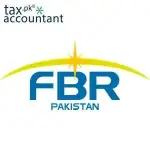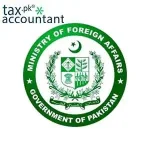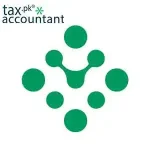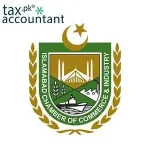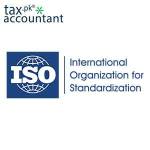Receiving a tax notice from the Federal Board of Revenue (FBR) https://fbr.gov.pk/ can feel daunting, especially one that calls for an audit. A “Notice to call for record / documents / books of account” under Section 177(1) of the Income Tax Ordinance is a formal request for an audit of your tax affairs. This is not an accusation of wrongdoing but a legal process to verify the accuracy of your tax returns.
This blog post will demystify this type of notice and provide a clear road-map on how to deal with it effectively.
Understanding the Section 177(1) Notice
A notice under Section 177(1) is an official communication from the Commissioner of Income Tax, informing you that your tax affairs have been selected for an audit. This notice requires you to produce specific records, documents, and books of account for a particular tax year.
The purpose of this audit is for the tax authorities to:
- Verify your declarations: The FBR wants to ensure that the income, expenditures, and taxes you have declared in your returns are correct and supported by proper documentation.
- Reconcile discrepancies: The FBR may have information from other sources (e.g., banks, property registrations, etc.) that doesn’t align with your tax filings. The audit is an opportunity to reconcile these differences.
- Assess tax liability: Based on the audit, the FBR will determine if your tax liability has been correctly assessed and if any additional tax is due.
Why Was My Case Selected for Audit?
Cases are typically selected for audit through a computer ballot, which can be random or parametric (based on certain criteria). Common reasons for being selected might include:
- High-value transactions: Significant transactions like a large property purchase, a high-value vehicle, or large cash deposits that seem disproportionate to your declared income.
- Inconsistent data: Mismatches between the information you provided and data the FBR has from third parties.
- Specific industry audits: The FBR may decide to audit a particular sector or industry.
- Discrepancies in previous filings: Errors or red flags identified in your previous tax returns.
How to Deal with the Notice: A Step-by-Step Action Plan
Responding to a Section 177(1) notice requires a systematic and meticulous approach.
Step 1: Don’t Panic and Verify the Notice
- Authenticate the notice: First, verify the authenticity of the notice. You can do this by checking your online FBR IRIS portal https://iris.fbr.gov.pk/login account for the same notice. FBR sends notices through various channels including postal mail, email, and the IRIS portal https://iris.fbr.gov.pk/login.
- Note the details: Carefully read the notice to understand the specific tax year being audited, the documents requested, and the deadline for submission. The notice will list the records required, which may include your books of account, bank statements, invoices, ledgers, and other financial documents.
Step 2: Gather and Organize All Requested Documents
This is the most critical part of your response. The more organized and complete your documentation is, the smoother the process will be.
- Create a checklist: Use the notice as a checklist and gather every single document mentioned.
- Assemble your records: This will likely include:
- Books of account (general ledger, cash book, etc.)
- Bank statements for all relevant accounts
- Invoices, receipts, and vouchers for all income and expenses
- Tax withholding certificates (Form 16, etc.)
- Sales and purchase records
- Agreements and contracts
- Stock and inventory records
- Proof of fixed asset purchases and depreciation calculations
- Digitize everything: If you have physical records, it is wise to scan and create digital copies for your own records. This also makes it easier to submit the documents if requested electronically.
Step 3: Conduct a Self-Assessment
Before submitting your documents, it’s prudent to conduct a mini-audit of your own records.
- Reconcile your books with your tax return: Check if your financial records accurately reflect the figures you reported in your tax return for the specified year.
- Identify and prepare for discrepancies: If you find any differences, prepare a clear, written explanation for each one. This proactive approach shows transparency and helps you control the narrative.
- Ensure compliance: Verify that your books of account and documents meet all the requirements of the Income Tax Ordinance.
Step 4: Draft a Formal and Professional Response
Your response should be professional, courteous, and factual.
- Address the notice formally: The letter should be addressed to the Commissioner of Income Tax who issued the notice.
- Acknowledge receipt: Start by formally acknowledging the notice and its reference number.
- State your readiness: Clearly state that you have compiled the requested documents and are ready to submit them. You may need to ask for a formal appointment for this.
- Provide a brief overview: If there are simple, legitimate explanations for any minor discrepancies (e.g., a one-time large cash transaction that was a loan), you can briefly mention it in the response letter. However, the detailed explanation and documentation will be provided during the audit proceedings.
Step 5: Attend the Hearing and Cooperate Fully
- Appear in person or through an authorized representative: You or a designated representative (like a chartered accountant or tax lawyer) must appear before the Commissioner on the specified date.
- Be prepared: Take all your documents, both hard copies and digital, along with your response letter.
- Answer questions clearly and calmly: The tax officer may ask questions to understand your business and financial transactions. Answer honestly and provide documentary evidence to support your claims.
- Be courteous and professional: Maintaining a respectful and cooperative attitude can go a long way.
Consider Professional Assistance
Dealing with a tax audit can be complex and stressful. It is highly recommended to engage a qualified tax consultant, chartered accountant, or lawyer to assist you. A professional can:
- Advise you on the legal aspects: They can ensure your response and documentation are compliant with the law.
- Represent you: They can attend the audit proceedings on your behalf.
- Navigate the process: They have experience in dealing with the FBR and can anticipate and address potential issues.
- You can always approach us at https://taxaccountant.pk/
Conclusion
A Section 177(1) notice is a serious matter, but it’s not a reason for alarm if you are prepared. By being organized, transparent, and cooperative, you can successfully navigate the audit process. The key is to respond promptly, provide accurate documentation, and, when in doubt, seek professional guidance to protect your interests.

